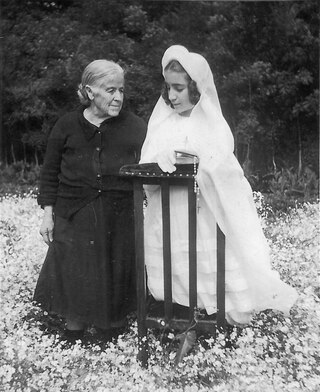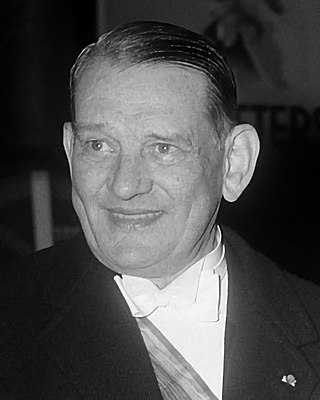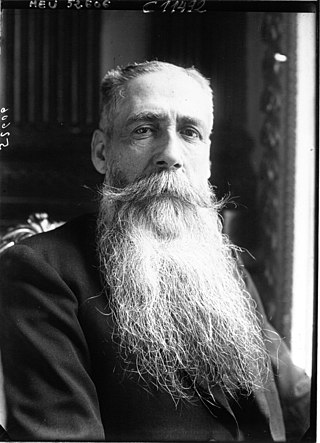
Jean Louis Marie Le Pen is a French politician who served as President of the far-right National Front from 1972 to 2011. He also served as Honorary President of the National Front from 2011 to 2015.
Women's suffrage is the right of women to vote in elections. At the beginning of the 18th century, some people sought to change voting laws to allow women to vote. Liberal political parties would go on to grant women the right to vote, increasing the number of those parties' potential constituencies. National and international organizations formed to coordinate efforts towards women voting, especially the International Woman Suffrage Alliance.

The Fifth Republic is France's current republican system of government. It was established on 4 October 1958 by Charles de Gaulle under the Constitution of the Fifth Republic.

French Algeria, also known as Colonial Algeria, was the period of Algerian history when the country was a colony and later an integral part of France.

Algerian nationalism is pride in the Algerian identity and culture. It has been historically influenced by the conflicts between the Deylik of Algiers and European countries, the French conquest of Algeria and the subsequent French colonial rule in Algeria, the Algerian War, and since independence by Arab socialism, Islamism and Arab nationalism.

The pieds-noirs are an ethno-cultural group of people of French and other European descent who were born in Algeria during the period of French rule from 1830 to 1962. Many of them departed for mainland France during and after the war by which Algeria gained its independence in 1962.

The National Liberation Front commonly known by its French acronym FLN, is a nationalist political party in Algeria. It was the principal nationalist movement during the Algerian War and the sole legal and ruling political party of the Algerian state until other parties were legalised in 1989.

Gustave Jules René Coty was President of France from 1954 to 1959. He was the second and last president of the Fourth French Republic.

Elections in Belgium are organised for legislative bodies only, and not for executive functions. Direct elections take place for the European Parliament, the Chamber of Representatives, the Parliaments of the Regions, the Parliaments of the Communities, the provincial councils, the municipal councils and the councils of Districts of Antwerp. Voting is mandatory and all elections use proportional representation which in general requires coalition governments.

Charles Célestin Auguste Jonnart was a French politician.
The Code de l'indigénat, called régime de l'indigénat or simply indigénat by modern French historians, were diverse and fluctuating sets of laws and regulations characterized by arbitrariness which created in practice an inferior legal status for natives of French colonies from 1881 until 1944–1947.

Racism has been called a serious social issue in French society by some commentators despite public belief that racism does not exist on a serious scale in France. Antisemitism and prejudice against Muslims have a long history. Acts have been reported against members of resident minority groups including Jews, Berbers, Arabs and Asian people. 2019 police data indicates a total of 1,142 acts classified as "racist" without a religious connotation.

The Young Algerians were a political group established in French Algeria in 1907. They were assimilationists, meaning that they wanted Algerian society to integrate with French colonial society. As such, they called for reforms that would give France's Algerian subjects the same rights as French citizens enjoyed.
Khaled ibn Hashimi ibn Hajj Abd al Qadir was the grandson of the military leader Abd al Qadir and was for a time a prominent opponent of the nature of French colonial rule in Algeria.

Charles Lutaud was a French administrator who became Governor General of Algeria from 1911 to 1918. He was a supporter of French settlement in the colony. He felt that granting voting rights to the indigenous Muslims of Algeria should only be done gradually, as they advanced to the same level as the French.

Jean-Baptiste Eugène Abel was a French politician who was briefly Minister of Labor and Social Welfare, and later was Governor-General of Algeria.
Mohamed Seghir Boushaki, was an Algerian Kabyle politician after the French conquest of Algeria.
Unions latines (UL) was an early 20th century fascist Algerian political party.

Municipal elections were held in French Algeria in November 1919 to elect municipal councils in cities.
The 1920 Algerian Political Rights Petition was the first petition to claim the political rights of Algerians within French Algeria following the 1919 Algerian municipal elections.











